추천 제품
생물학적 소스
rabbit
Quality Level
결합
unconjugated
항체 형태
affinity isolated antibody
항체 생산 유형
primary antibodies
클론
polyclonal
양식
buffered aqueous solution
분자량
44 kDa
종 반응성
bovine, human, pig, rabbit, sheep
농도
0.5 mg - 1 mg/mL
기술
ChIP: suitable
immunohistochemistry: suitable
western blot: suitable
UniProt 수납 번호
배송 상태
wet ice
저장 온도
−20°C
유전자 정보
human ... TP53(7157)
일반 설명
TP53 acts as a tumor suppressor in many tumor types; induces growth arrest or apoptosis depending on the physiological circumstances and cell type. Involved in cell cycle regulation as a trans-activator that acts to negatively regulate cell division by controlling a set of genes required for this process. This gene encodes tumor protein p53, which responds to diverse cellular stresses to regulate target genes that induce cell cycle arrest, apoptosis, senescence, DNA repair, or changes in metabolism. p53 protein is expressed at low level in normal cells and at a high level in a variety of transformed cell lines, where it′s believed to contribute to transformation and malignancy. p53 is a DNA-binding protein containing transcription activation, DNA-binding, and oligomerization domains. It is postulated to bind to a p53-binding site and activate expression of downstream genes that inhibit growth and/or invasion, and thus function as a tumor suppressor. Mutants of p53 that frequently occur in a number of different human cancers fail to bind the consensus DNA binding site, and hence cause the loss of tumor suppressor activity. Alterations of this gene occur not only as somatic mutations in human malignancies, but also as germline mutations in some cancer-prone families with Li-Fraumeni syndrome. Multiple p53 variants due to alternative promoters and multiple alternative splicing have been found. These variants encode distinct isoforms, which can regulate p53 transcriptional activity.
면역원
Synthetic peptide directed towards the N terminal region of human TP53
생화학적/생리학적 작용
TP53 acts as a tumor suppressor in many tumor types; induces growth arrest or apoptosis depending on the physiological circumstances and cell type. Involved in cell cycle regulation as a trans-activator that acts to negatively regulate cell division by controlling a set of genes required for this process. This gene encodes tumor protein p53, which responds to diverse cellular stresses to regulate target genes that induce cell cycle arrest, apoptosis, senescence, DNA repair, or changes in metabolism. p53 protein is expressed at low level in normal cells and at a high level in a variety of transformed cell lines, where it′s believed to contribute to transformation and malignancy. p53 is a DNA-binding protein containing transcription activation, DNA-binding, and oligomerization domains. It is postulated to bind to a p53-binding site and activate expression of downstream genes that inhibit growth and/or invasion, and thus function as a tumor suppressor. Mutants of p53 that frequently occur in a number of different human cancers fail to bind the consensus DNA binding site, and hence cause the loss of tumor suppressor activity. Alterations of this gene occur not only as somatic mutations in human malignancies, but also as germline mutations in some cancer-prone families with Li-Fraumeni syndrome. Multiple p53 variants due to alternative promoters and multiple alternative splicing have been found. These variants encode distinct isoforms, which can regulate p53 transcriptional activity.
서열
Synthetic peptide located within the following region: EEPQSDPSVEPPLSQETFSDLWKLLPENNVLSPLPSQAMDDLMLSPDDIE
물리적 형태
Purified antibody supplied in 1x PBS buffer with 0.09% (w/v) sodium azide and 2% sucrose.
면책조항
Unless otherwise stated in our catalog or other company documentation accompanying the product(s), our products are intended for research use only and are not to be used for any other purpose, which includes but is not limited to, unauthorized commercial uses, in vitro diagnostic uses, ex vivo or in vivo therapeutic uses or any type of consumption or application to humans or animals.
적합한 제품을 찾을 수 없으신가요?
당사의 제품 선택기 도구.을(를) 시도해 보세요.
Storage Class Code
10 - Combustible liquids
WGK
WGK 3
Flash Point (°F)
Not applicable
Flash Point (°C)
Not applicable
가장 최신 버전 중 하나를 선택하세요:
Qin Li et al.
Molecular cancer research : MCR, 12(6), 901-911 (2014-03-07)
The p53 (TP53) tumor suppressor is the most frequently mutated gene in human cancers. Restoring expression of wild-type p53 has led to tumor growth suppression in a variety of tumor models that are p53 deficient. Other mechanisms, for example, upregulation
Wei Min et al.
The American journal of Chinese medicine, 42(3), 709-727 (2014-05-30)
Ultraviolet A (UVA) radiation contributes to skin photoaging. Baicalin, a plant-derived flavonoid, effectively absorbs UV rays and has been shown to have anti-oxidant and anti-inflammatory properties that may delay the photoaging process. In the current study, cultured human skin fibroblasts
Maja T Tomicic et al.
Cancer research, 74(19), 5585-5596 (2014-08-16)
DNA repair processes are a key determinant of the sensitivity of cancer cells to DNA-damaging chemotherapeutics, which may induce certain repair genes as a mechanism to promote resistance. Here, we report the results of a screen for repair genes induced
C Leufke et al.
Oncogene, 33(27), 3506-3518 (2013-08-21)
The incidence of skin cancer is increasing worldwide and cutaneous squamous cell carcinomas (SCCs) are associated with considerable morbidity and mortality, particularly in immunosuppressed individuals ('carcinomatous catastrophy'). Yet, molecular mechanisms are still insufficiently understood. Besides ultraviolet (UV)-indicative mutations, chromosomal aberrations
Yifeng Sun et al.
Scientific reports, 4, 6527-6527 (2014-10-07)
miR-3127-5p is a primate-specific miRNA which is down-regulated in recurrent NSCLC tissue vs. matched primary tumor tissue (N = 15) and in tumor tissue vs. normal lung tissue (N = 177). Reduced miR-3127-5p expression is associated with a higher Ki-67
자사의 과학자팀은 생명 과학, 재료 과학, 화학 합성, 크로마토그래피, 분석 및 기타 많은 영역을 포함한 모든 과학 분야에 경험이 있습니다..
고객지원팀으로 연락바랍니다.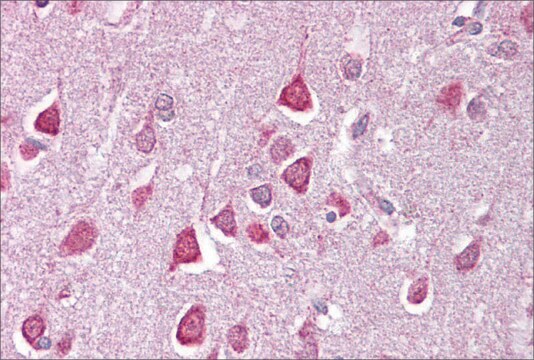

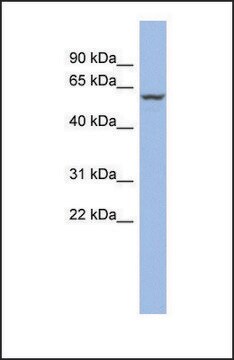
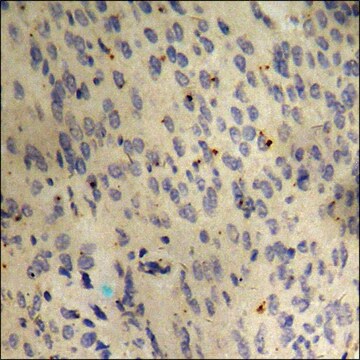

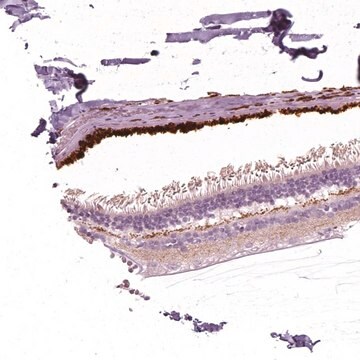
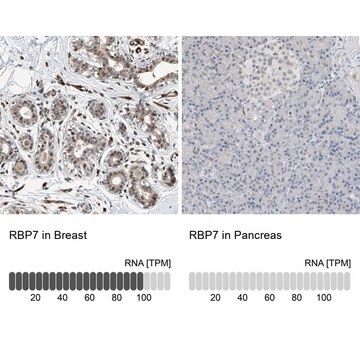
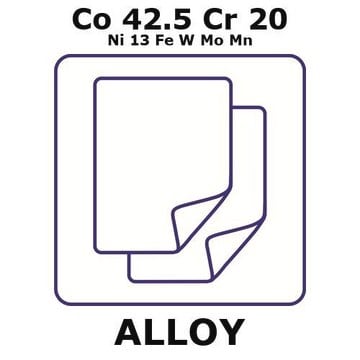
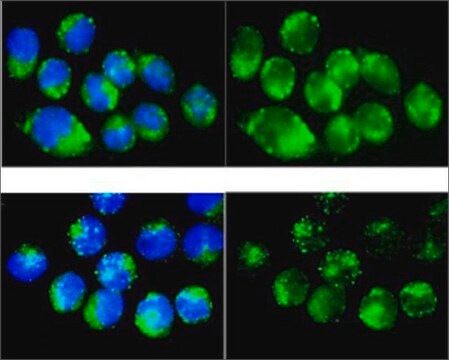
![[KO Validated]Anti-HPRT1 Antibody, clone 4N2Q6, Rabbit Monoclonal](/deepweb/assets/sigmaaldrich/product/images/171/415/c02424c7-5933-411e-8bf9-d0f73a39e4de/640/c02424c7-5933-411e-8bf9-d0f73a39e4de.jpg)